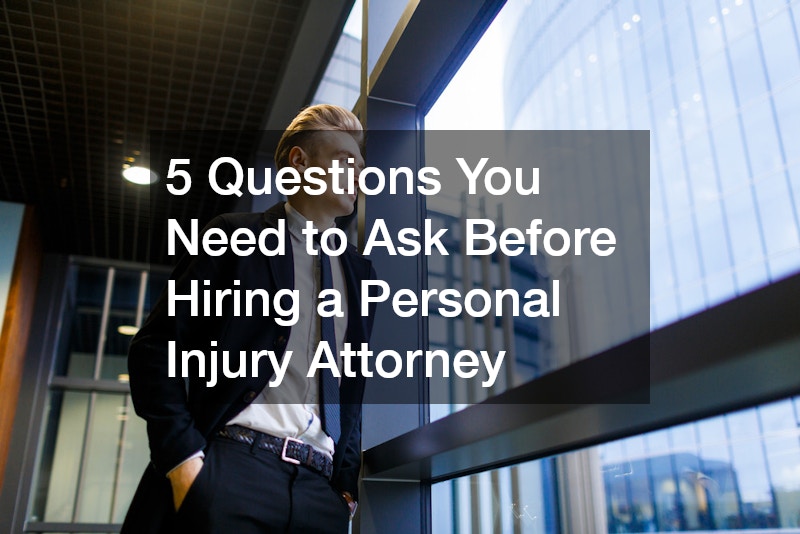The Complete Guide to Hiring a Personal Injury Attorney
Finding yourself in need of a personal injury attorney can be daunting. Navigating the legal landscape after an accident or injury requires expertise and a deep understanding of the law, making it crucial to choose the right representation. In this guide, we’ll walk you through the essential steps to find and hire the most competent personal injury attorney for your case.
The goal is to ensure you are confident and informed, maximizing your chances of a favorable outcome. Let’s delve into the critical elements that will guide you in making the best choice.
Understanding the Role of a Personal Injury Attorney
A personal injury attorney is a specialized legal professional who represents clients claiming to have been injured, physically or psychologically, as a result of the negligence or wrongdoing of another person, company, government agency, or any entity. Their primary role is to help their clients recover financial compensation for their injuries, which can include lost wages, medical expenses, and pain and suffering. They are experts in tort law, which includes both intentional acts and negligence.
When you hire a personal injury attorney, they will first conduct a comprehensive assessment of your case. This involves gathering all necessary information related to the incident, such as medical records, witness statements, and accident reports. Part of their role is to advise you on the best course of action, either pursuing a negotiated settlement with insurance companies or proceeding to trial if necessary.
Additionally, personal injury attorneys are equipped to handle the intricate process of negotiations with insurance companies. Having a lawyer can be advantageous, as insurance companies are more inclined to offer a fair settlement to those represented by legal counsel. An attorney’s involvement assures that your claims are backed by thorough preparation and expert handling, which can significantly impact the compensation you receive.
How to Research Potential Attorneys
Before hiring a personal injury attorney, it’s essential to conduct thorough research to ensure you find the best possible candidate. Start by seeking recommendations from friends, family, or colleagues who may have had similar experiences. Additionally, online platforms provide directories and client reviews, which can help you compile a list of potential attorneys.
Once you have a list, delve deeper into their expertise and track record. Check their professional background, including education, years of practice, and areas of specialization. Pay attention to significant cases they have handled and their outcomes. Positive client testimonials can also serve as a testament to their capabilities. Interviewing potential attorneys is an important step that should not be skipped. Prepare a set of questions that will gauge their experience, strategy for your case, and payment terms.
What to Expect During the Initial Consultation
The initial consultation with a personal injury attorney is a critical step in your selection process. This meeting allows you to present the facts of your case and ask pertinent questions to understand how the attorney plans to handle your situation. It’s advisable to bring any relevant documentation with you, such as medical reports or accident records, to provide a comprehensive overview of your case.
During this consultation, pay attention to the attorney’s approach and interest in your case. A competent attorney will outline realistic expectations and potential challenges while avoiding guarantee-driven assurances. They should also explain their fee structure clearly, including whether they work on a contingency basis, meaning they only get paid if you win your case.
Evaluating Fees and Costs
Understanding the fee structure and costs associated with hiring a personal injury attorney is vital to avoid future misunderstandings. Many attorneys work on a contingency fee basis, which means their fee is a percentage of your settlement or court award. This arrangement can be beneficial as it aligns the attorney’s interests with yours: winning the case to ensure compensation for both parties.
However, it’s crucial to clarify what percentage they will take and whether there are any additional costs not covered by the contingency fee, such as court filing fees or expert witness expenses. A transparent discussion about these costs will help you prepare for any financial obligations. Remember, the cheapest option isn’t always the best one; weigh the attorney’s experience and track record against their fees.
Reputable attorneys should provide a written agreement detailing the fee arrangement and any additional costs you might incur. Review this agreement carefully before signing, and don’t hesitate to ask questions regarding anything unclear.
The Importance of Communication and Compatibility
Communication is a cornerstone of the relationship between client and attorney, ensuring you are always informed about the progress of your case. Good attorneys will provide regular updates, explaining any developments and guiding you through decisions that need to be made. They should also be accessible, responding to calls and emails promptly to resolve any concerns you might have.
Compatibility with your attorney can significantly impact your case’s progress and outcome. You should feel comfortable discussing personal matters with them, as these details can be crucial to building a compelling case. A trustworthy attorney will respect your views and involve you in strategic decisions without leaving you feeling overshadowed or uninformed.





Post Comment